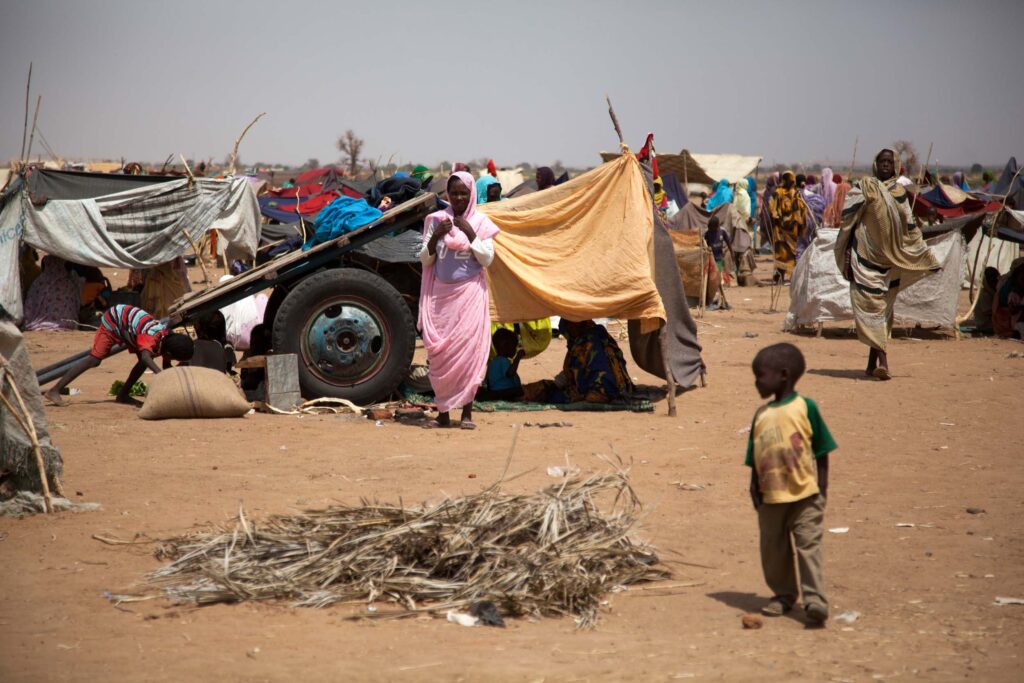Child mortality rates surge in South Darfur camps

Kalma camp for the displaced near Nyala in South Darfur (File photo: Albert González Farran / UNAMID
Child mortality rates are surging in South Darfur’s displaced camps, notably in Kalma camp, as local activists reported alarming shortages of food and medicine yesterday. In particular children, the elderly, and pregnant women are affected.
Shamseldin Saleh, a political activist, told Radio Dabanga of the dire situation being endured in Kalma and other camps across the state. Amid the ongoing war, humanitarian relief efforts have stalled, and hunger levels continue to intensify.
Saleh urgently appealed for local and international aid, directing calls to UN agencies and the World Food Programme for immediate assistance.
The already grim circumstances worsen with the security situation hindering job opportunities, non-payment of salaries, and weakened agricultural seasons.
Abubakr Hasan from Otash Camp lamented over the suspension of food aid, deteriorating health conditions, and water scarcity, pleading for swift action from humanitarian organisations, particularly in health and food relief for Otash’s displaced residents.
Hunger
Sudan faces a humanitarian ‘catastrophe’ amidst the ongoing war, with increasingly alarming hunger levels that have doubled in the span of a year, the UN World Health Organisation (WHO) said in December. The UN Food and Agriculture Organisation (FAO) yesterday reported that at least 37 per cent of the population is grappling with severe levels of food insecurity.
In a news release last month, WHO warned that “nearly 18 million people across Sudan are facing acute hunger (IPC3+) – more than double the number at the same time a year ago”.
The statement continues: “This figure is also higher than the initial projection of 15 million made in the previous assessment in August, demonstrating just how rapidly the food security situation is worsening”, citing a report by the Integrated Food Security Phase Classification (IPC).
Although Sudan’s harvest season, spanning October to February, is typically a period where food availability is at its peak, the country now witnesses “the highest levels of hunger ever recorded”.
If no urgent intervention takes place by May, in time for Sudan’s lean season, “conflict hotspots could see the emergence of catastrophic hunger, also known as Phase 5 on the Integrated Food Security Phase Classification (IPC),” WHO predicted.
The UN Food and Agriculture Organisation (FAO) also warned about an escalating hunger crisis, in particular in the most affected regions: Darfur, Kordofan, and Khartoum. Approximately 37 per cent of the population is grappling with severe levels of food insecurity.








 and then
and then